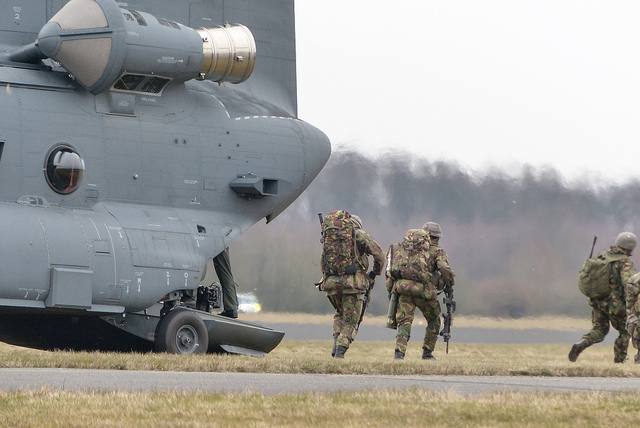
PESCO: Good News for NATO from the EU

In
Good news: the US and, in its wake, NATO Secretary-General Jens Stoltenberg, are getting concerned about the EU’s defence plans. Those should not lead to a duplication of NATO, nor create economic barriers between both sides of the Atlantic, they have said as the NATO Defence Ministers are meeting in Brussels. That’s good news, for it is the best proof that PESCO, the Permanent Structured Cooperation in defence that the EU launched in December of last year, has real potential. Otherwise the US would not worry about it.
(Photo credit: archangel-12-1; Flickr)
*****
PESCO: Good News for NATO from the EU
Good news: the US and, in its wake, NATO Secretary-General Jens Stoltenberg, are getting concerned about the EU’s defence plans. Those should not lead to a duplication of NATO, nor create economic barriers between both sides of the Atlantic, they have said as the NATO Defence Ministers are meeting in Brussels. That’s good news, for it is the best proof that PESCO, the Permanent Structured Cooperation in defence that the EU launched in December of last year, has real potential. Otherwise the US would not worry about it.
It’s also slightly hypocritical on the part of the US, of course. President Donald Trump has shouted louder than anybody else that the Europeans should spend more on defence. That’s exactly what 25 out of 28 EU Member States have agreed: to increase their defence budgets in real terms, and to allocate 20% of their expenditure to investments. They have even put this in a legally binding Council Decision. And yet the US is not happy.
Why not? Because the EU Member States are finally about to do what they have been talking about for a long time: pooling their defence efforts. PESCO seeks to launch multinational European projects within the framework of the EU. The aim: for Europeans to stop competing each other into the ground by producing three different fighter aircraft or twenty different armoured vehicles. If PESCO works, then in the future the participating states will publish one call for tender and award one contract, to build one model. That will be a lot cheaper for Europe’s Ministries of Defence.
But, of course, the explicit objective of PESCO also is to make the European defence industry more competitive. And that’s where the US is starting to worry, for obviously Europeans will by more (though not necessarily all) equipment from Europe. But did Trump, who likes to present himself as a businessman, really expect that Europeans would increase their defence budgets only to buy all of their equipment in the US?
In reality, PESCO is very good news for NATO too. NATO defines capability targets for the individual states. But in many capability areas, the European allies, even France and Germany, have become too small to generate significant capacity by themselves. Together, however, Europeans can generate more capacity than separately. That they choose to do this in a European framework, PESCO in the EU, is perfectly logical, all the more so because the European Commission can co-finance PESCO-projects for up to 30%, from the EU-budget. But all additional capacity that the Europeans acquire thanks to PESCO, can still be deployed for operations in all possible frameworks: the EU itself, NATO, the UN, or an ad hoc coalition of European states. PESCO doesn’t threaten NATO – it strengthens the European pillar of NATO.
Moreover, if PESCO is successful, Europeans will not only be able to contribute more to collective territorial defence and expeditionary operations in a NATO framework. They will also be capable of mounting autonomous operations in their own periphery, without needing to have recourse to American assets. The more Europeans can take charge of problems around Europe, the more they can do so in their way, and the more the US can focus its military means on its own priorities.
European strategic autonomy, that is called. Surely the US can have nothing against it if its most important allies finally start to take defence seriously?
Prof. Dr. Sven Biscop, an Honorary Fellow of the European Security and Defence College (ESDC), is the Director of the Europe in the World Programme at the Egmont – Royal Institute for International Relations in Brussels and lectures at Ghent University.